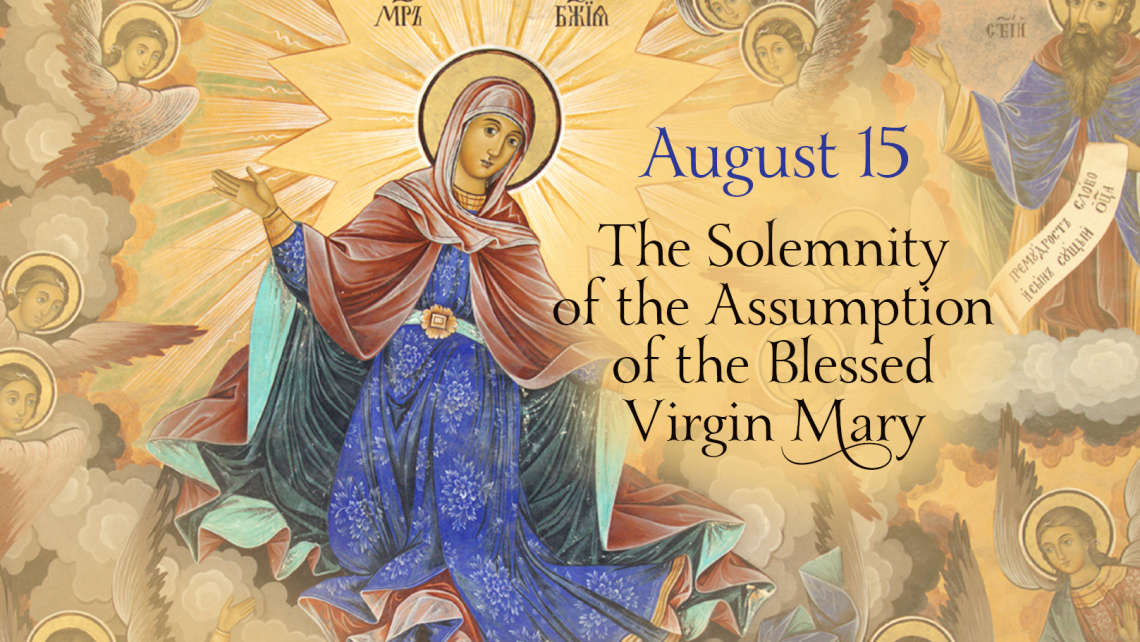Solemnity of the Assumption of the Blessed Virgin Mary Mass Times at Maine Parishes Now Available

The Solemnity of the Assumption of the Blessed Virgin Mary (August 15) is a holy day of obligation which celebrates Mary’s Assumption into heaven, body and soul, at the end of her earthly life. It is a joyful day for Catholics as the Assumption celebrates what each of us hopes and expects to happen: the Lord of the harvest will one day, in the fullness of time, raise our earthly bodies from the ground and join them to our souls in the kingdom of Heaven for all eternity.
The Church has been observing the Assumption of Mary into Heaven as a holy day since about the 4th century. Early celebrations of the Assumption coincided with late summer harvest festivals, honoring Mary as the “first fruit” harvested from God’s creation at the same time of year that the first fruits of the field were being harvested. Homilies on the Assumption can be found going back to the sixth century. The feast was celebrated under various names (Commemoration, Dormition, Passing, Assumption) from at least the fifth or sixth century.
In 1950, Pope Pius XII, in his encyclical Munificentissimus Deus (Most Bountiful God), dogmatically defined the Assumption of the Blessed Virgin Mary. In this teaching, he states that “at the end of her earthly course, Mary was assumed in heavenly glory body and soul.”
"This feast shows not only that the dead body of the Blessed Virgin Mary remained incorrupt, but that she gained a triumph out of death, her heavenly glorification after the example of her only begotten Son, Jesus Christ," Pope Pius XII wrote.
The Pope proclaimed this dogma only after a broad consultation of bishops, theologians, and laity. What the Pope solemnly declared was already a common belief in the Catholic Church. The dogma of the Blessed Mother's assumption, the Pope wrote, "is contained in the deposit of Christian faith entrusted to the Church." The proof, he said, can be found in early sacred writings, in the wisdom of theologians and doctors of the Church, and in the minds of the faithful.
"Since our Redeemer is the Son of Mary, he could not do otherwise, as the perfect observer of God's law, than to honor not only his eternal Father but also his most beloved Mother. And, since it was within his power to grant her this great honor, to preserve her from the corruption of the tomb, we must believe that he really acted in this way."
To view solemnity Mass times at Maine parishes, both for Monday evening (August 14) and Tuesday (August 15), click here.









